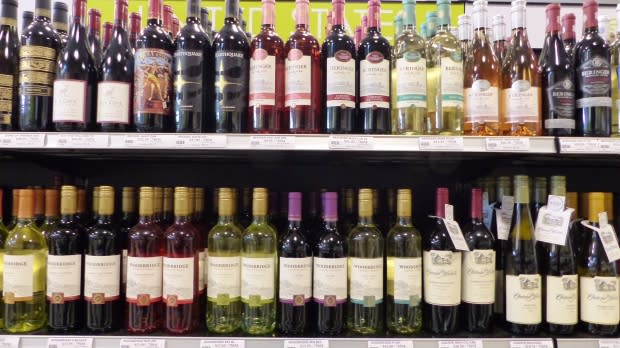New booze permit rules have big-box retailers set to move into Sask.
The nearly 700 people and companies with permits to run offsales and liquor stores in Saskatchwan are sitting on golden tickets, thanks to a coming rule change.
One Yorkton hotel owner said earlier this year, a Toronto consortium offered up to $250,000 to buy his offsale permit. He refused.
In Regina, Saskatoon and their bedroom communities, the same permits have changed hands in several cases for closer to a million dollars, according to Saskatchewan's Hotel and Hospitality Association.
The Saskatchewan Liquor and Gaming Authority is gradually converting government-run liquor board stores to privately-run ones, but it has no plan to issue additional retail store permits.
On October 8, the province will lift a moratorium on the sale of existing permits, allowing old owners to walk away with hundreds of thousands of dollars and new owners to open retail spaces across the city with tens of thousands of square feet of alcohol for sale.

That irks Greg Dionne, the mayor of Prince Albert, a city where nine hotels and stores can sell liquor.
The city of 35,000 has struggled with alcohol abuse. One bar in Prince Albert has consistently sold more alcohol than any other in the province for years.
Dionne said he's disappointed to see liquor permits trading hands quietly for hundreds of thousands of dollars.
"If that licence is done and not being used it should be returned to the province, not being held onto and sold for big profits," Dionne said.
New owners can open anywhere in the same community
Anyone the SLGA deems to be of "good character" may hold a retail liquor permit. Once a permit is obtained, they may open anywhere in the community they were issued for and can sell any day of the year between 8 a.m. and 3 a.m.
Drive-through windows will be permitted, booze of any type can be chilled and prices are left largely at the owner's discretion.
The Real Canadian Liquor Store will soon open locations in Moose Jaw, Yorkton, Regina and Saskatoon.

That raises concerns for people who currently run taverns and offsales.
"Can a big box store, for instance, buy that permit and set up 40,000 square feet of liquor retailing space in someone else's backyard?" asked Jim Bence, with the Saskatchewan Hotel and Hospitality Association.
"We'll see communities reshaped" - Jim Bence, Saskatchewan Hotel and Hospitality Association

He said it's not just direct competitors who are concerned.
Bence said over the past year, some restaurants and bars have watched customers evaporate, preferring to socialize at private homes.
"We'll see communities reshaped, their landscape reshaped as to the number of stores that are even in the community," said Bence.
"If you have a big operator move into town, that'll put a bunch [of smaller stores] out," he said.
'We're pretty much at capacity'
"It's going to be an interesting fall," said Prince Albert's mayor Dionne, who noted marijuana also becomes legal next month.
Dionne says the two cannabis stores set to open in Prince Albert next month must pay $20,000 for municipal operating licences, and may only open their doors between 11 a.m. and 11 p.m.
He said he'd like liquor stores abide by similar hours.
"We probably have 30,000 square feet of liquor stores under construction," said Dionne. "I think we're pretty much at capacity for the amount of liquor that's sold here."
Gene Makowsky, the minister responsible for SLGA, said liquor businesses could be 'significantly devalued' if owners could not sell or transfer retail permits.
"The ability for a business to transfer the rights to a permit acknowledges the investment these operators make in their business and in their community, often for a significant number of years," said Makowsky in an e-mail statement.
"That could make it hard to attract new owners or any sort of capital investment into the infrastructure required for a retail liquor store," he added.

